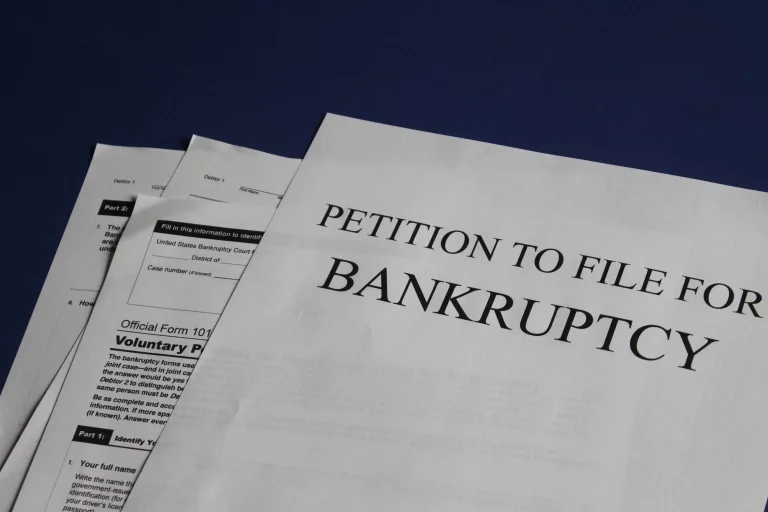It has now been two years since the 2018 Farm Bill became law and, despite legalization, the hemp industry continues to experience some choppy waters. There remains inconsistency and uncertainty surrounding regulatory framework (both at state and local levels), litigation and uncertainty with the DEA, ongoing access challenges to banking and other financial services, and now with the impact of the pandemic, harbors for distressed companies in this industry seem few and far between.
This past November, the Eastern District of Kentucky Bankruptcy Court approved and confirmed Kentucky hemp giant, GenCanna Global/OGGUSA’s Chapter 11 Plan of Liquidation, finally closing one of the first bankruptcy cases for the hemp industry.
GenCanna was a vertically integrated agriculture-technology company, hemp producer and CBD manufacturer. Founded in 2014, it was an inaugural member of Kentucky’s industrial hemp pilot program and described itself as a pioneer in the industry. It filed for bankruptcy in February 2020 weeks after a number of its creditors tried to force the company into an involuntary Chapter 11.
The bankruptcy has been contentious. GenCanna entered bankruptcy with $13 million in secured liens, and the company facing pressure and accusations of fraud from farmers and creditors. Its petition listed dozens of creditors, companies and individuals, spread out through Kentucky, other states, and Canada.
Ultimately, GenCanna ended up selling the bulk of its assets to its lender/creditor MGG Investment Group. The sale, valued at $77 million, allowed MGG Investment Group to recoup its initial investments. The remaining assets will be distributed to the remaining creditors in line of priority.
The GenCanna bankruptcy confirms that there are options available beyond cannabis receivership, or simply winding down without court supervision, and in particular the option of federal bankruptcy protection, for hemp and CBD businesses.
Bankruptcy courts have generally refused to afford companies that engage in the sale or distribution of marijuana or cannabis-related products the same protections available to non-cannabis-related businesses. In fact, some bankruptcy courts have dismissed cases even where the debtors do not operate a cannabis business, but operate ancillary businesses such as the manufacture or sale of hydroponic equipment that may be used for cultivating marijuana, or even real estate businesses that lease to marijuana growers.
Things were expected to change for hemp and CBD businesses, especially after hemp was legalized as a commodity under the 2018 Farm Bill and removed from the Federal Controlled Substances Act (“FCSA”). But did things change?
In May of 2019, the Ninth Circuit’s decision in Garvin v. Cook Investments was considered at the time a ray of hope for cannabis bankruptcies. In Garvin, the Ninth Circuit Court of Appeals confirmed a Chapter 11 plan of reorganization filed by a landlord that leased space to a cannabis grower licensed in the State of Washington, rejecting the United States Trustee’s argument that the plan should be denied because it did not comply with Section 1129 (a)(3) of the Bankruptcy Code, which requires that a plan be filed in good faith and comply with applicable non-bankruptcy law.
The Ninth Circuit concluded that Section 1129(a)(3) does not require that the contents of a plan comply in all respects with the provisions of all non-bankruptcy laws and regulations. Because the plan at issue was not unlawful, the Ninth Circuit concluded that the plan was not per se unconfirmable.
Notably, the Ninth Circuit rejected the Trustee’s concern that the Ninth Circuit’s interpretation of Section 1129(a)(3) will result in bankruptcy proceedings being used to facilitate legal violations. “To begin, absent waiver, as in this case, courts may consider gross mismanagement issues under Section 1112(b) … And confirmation of a plan does not insulate debtors from prosecution for criminal activity, even if that activity is part of the plan itself.”
Unfortunately, the Garvin decision did not have the impact the industry was hoping for at the time. Several courts have addressed whether bankruptcy law can be used to restructure or liquidate cannabis-related business differently.
Earlier in late 2018, the United States District Court for the District of Colorado in In re Way to Grow, Inc. affirmed the bankruptcy court’s order dismissing the bankruptcy cases filed by the debtors, which supplied equipment and consulting services to cannabis growers (in this case hydroponic gardening equipment and advisory services), for cause under Section 1112(b) on the grounds that it violated the FCSA, even though the evidence at trial showed that some customers used the hydroponic products to grow legal crops unrelated to the cultivation of cannabis. In this case, as in many others, the cannabis companies involved were operating legally under applicable state laws.
In May of 2019, only 19 days after the Ninth Circuit’s decision in Garvin v. Cook Investments, the bankruptcy court for the Eastern District of Michigan in In re Basrah Custom Design, Inc. similarly dismissed the debtor’s Chapter 11 case on the grounds that the debtor had unclean hands because the purpose of the bankruptcy filing was to either allow the debtor’s principal to lease commercial space to a marijuana grower or to enter into the marijuana growing business, both of which the bankruptcy court found to violate the FCSA, although both were legal under Michigan law.
Notably, although the “good faith” issue was not raised by any party, the Basrah court stated in dictum that the Ninth Circuit’s holding in Garvin was not binding on the court, and questioned the wisdom of the Ninth Circuit’s refusal to decide the dismissal issue on waiver grounds because confirmation of the Chapter 11 plan enabled the reorganized debtor to continue to violate federal law under the FCSA.
The Basrah court also denied the request to convert the case to Chapter 7, finding that conversion would serve no purpose since it would likely lead to relief from stay by a cannabis company in order to obtain possession of the commercial property where the debtor operated its business. As the court noted, granting such a motion would essentially sanction violation of the FCSA. Thus, the Basrah court would likely have had to deny relief from stay on the grounds of unclean hands, because lifting the automatic stay would assist the creditor in its efforts to open and operate a medical marijuana dispensary in violation of federal law.
Earlier that year, on April 16, 2019, CWNevada, LLC, one of Nevada’s largest cannabis companies, filed Chapter 11 bankruptcy after facing almost a dozen lawsuits from investors, makers of edibles, partners, a landlord and workers over failure to pay or pay on time. CWNevada was also ordered to pay its former consultant $4.9 million, while the Nevada Department of Taxation shut down two of its dispensaries for failure to pay taxes. The bankruptcy was filed as a preemptive move to prevent the District Court from appointing a receiver.
The bankruptcy case was short-lived.
On June 3, 2019, Judge Nakagawa issued an order dismissing the bankruptcy cases under the doctrine of abstention. Judge Nakagawa’s 40-page decision provides the most detailed analysis and summary of the state of the law on cannabis-related bankruptcies. Judge Nakagawa found that under the circumstances of that case, where no plan had been proposed, and no objections had been made, the “decision in Garvin is informative, but neither procedurally nor factually apposite.” Although Garvin controlled when a good faith objection to plan confirmation is raised under 11 U.S.C. § 1129(a)(3), Judge Nakagawa emphasized that there was no plan and no such objection before the court. Judge Nakagawa noted, however, that Garvin “offers no guidance on whether dismissal under section 1112(b)(1) on the basis of mismanagement under section 1112(b)(4)(B), or any other ground, would be appropriate in the present case.” Notably, “the Garvin decision does not address whether dismissal independently based on abstention under Section 305(a) is appropriate.”
Because CWNevada was subject to multiple state court actions, Judge Nakagawa abstained under Section 305(a) of the Bankruptcy Code, and declined to determine whether the case should be dismissed for “cause” under Section 1112(b) of the Bankruptcy Code.
Finally, Judge Nakagawa was unwilling to decide the unclean hands issue as precluding all debtors engaged in cannabis-related businesses, noting that there may be “cases where Chapter 11 relief is appropriate for an individual or a non-individual entity directly engaged in a marijuana-related business.”
Later, in 2020, the United States Bankruptcy Court for the District of Colorado in In re Malul, denied a former Chapter 7 debtor’s motion to reopen her case to administer potential claims against a previously undisclosed investment in a marijuana business, concluding that the debtor’s “mere possession” of the rights and interests in a marijuana cultivation and sale business and prosecution of her claims in furtherance of those rights and interests constitute ongoing criminal violations of the FCSA. The bankruptcy court rejected the debtor’s arguments regarding the lack of an ongoing marijuana operation or marijuana assets that would have violated FCSA §§ 841, 842 or 843, noting that the debtor violated FCSA § 854 the moment the investment was executed. The Bankruptcy Court noted that cannabis bankruptcy law was murky at best:
If the uncertainty of outcomes in marijuana-related bankruptcy cases were an opera, Congress, not the judiciary, would be the fat lady. Whether, and under what circumstances, a federal bankruptcy case may proceed despite connections to the locally “legal” marijuana industry remains on the cutting-edge of federal bankruptcy law. Despite the extensive development of case law, significant gray areas remain. Unfortunately, the courts find themselves in a game of whack-a-mole; each time a case is published, another will arise with a novel issue dressed in a new shade of gray.
On April 20, 2020, United Cannabis Corporation and its wholly-owned subsidiary, UC Colorado Corporation, filed voluntary petitions for reorganization under Chapter 11 in the United States Bankruptcy Court for the District of Colorado. Two days after United Cannabis’ filing, the bankruptcy court issued an “Order to Show Cause” why the bankruptcy should not be dismissed, citing the rule that businesses whose operations constitute federal crimes cannot take advantage of the federal bankruptcy system and stating the company “appears to be engaged in the marijuana industry.”
The United States Trustee in response to the court’s Order to Show Cause has taken the position that the case should be dismissed due to the debtors’ license of intellectual property to businesses in the cannabis industry, and the fact that the debtors’ website promotes the sale of cannabis products.
United Cannabis has maintained that its current business is in compliance with both applicable federal and state law inasmuch as it is now selling only “legal CBD products” made from legal industrial hemp plants. No revenues are being generated from cannabis plants containing levels of THC that exceed the legal limit under the 2018 Farm Bill.
In SEC filings, United Cannabis has said its focus is on manufacturing and selling hemp-derived CBD products, which are legal under federal law. However, SEC filings also reflect the company holding patents licensed to medical and recreational marijuana businesses.
Despite its patents, the vast majority of United Cannabis’s revenue through the third quarter of last year came from sale of its CBD products and only a small portion was derived from licensing and consulting related to marijuana. United Cannabis has made the argument that their primary business is legal, while any marijuana-related activity is insignificant and indirect.
The United States Trustee has responded that despite its current business, United Cannabis’ former involvement in the production and sale of non-hemp cannabis products is sufficient to disqualify it from reorganizing under Chapter 11. While the debtor may no longer be violating the FCSA, the U.S. Trustee’s position is that the company’s prior violations disqualify it now from taking advantage of the federal bankruptcy laws.
The court has not issued its ruling on the Order to Show Cause. The bankruptcy case remains pending.
Without question, as with the GenCanna bankruptcy, the United Cannabis bankruptcy will be closely watched and will have a ripple effect on other distressed businesses in the industry looking for the potential harbor of federal bankruptcy protection in the rough seas ahead.
Indeed, for distressed cannabis-related companies, and in particular, distressed hemp and CBD companies, the promise of bankruptcy is still very much alive.
About Tomas A. Ortiz:
Counsel, Zuber Lawler
tortiz@zuberlawler.com
Tomas A. Ortiz focuses on bankruptcy litigation, bankruptcy and non-bankruptcy restructuring proceedings, bankruptcy asset sales, domestic and international corporate restructuring, and distressed asset transactions. Mr. Ortiz represents a wide range of stakeholders, including creditors, debtors, trustees, creditors’ committees, franchisors, real estate enterprises, and corporate/institutional interests, including banks and non-institutional lenders, manufacturers, suppliers, retailers, commercial and residential real estate investors, commercial landlords and tenants. Mr. Ortiz represents clients in connection with real estate and commercial transactions and disputes. Mr. Ortiz also currently advises clients in the cannabis industry in relation to corporate restructuring and insolvency, banking and regulatory issues, commercial disputes and litigation. Mr. Ortiz also serves as general counsel for corporate clients in the cannabis and food industries.
About Zuber Lawler:
Zuber Lawler, one of the most selective law firms in the United States, represents clients throughout the world from offices in Chicago, Denver, Los Angeles, Phoenix, New York, and Silicon Valley. In addition to representing a list of Fortune companies, as well as funds and government entities, Zuber Lawler represents leading companies in emerging industries and technologies, including cannabis, blockchain, eSports/virtual reality, and psychedelics. Zuber Lawler focuses on intellectual property; M&A, finance, and other deals; IPOs; antitrust, data/privacy, FDA, anti-corruption, and other regulatory work; and litigation. Zuber Lawler’s attorneys work in languages covering 90% of the world’s population.




